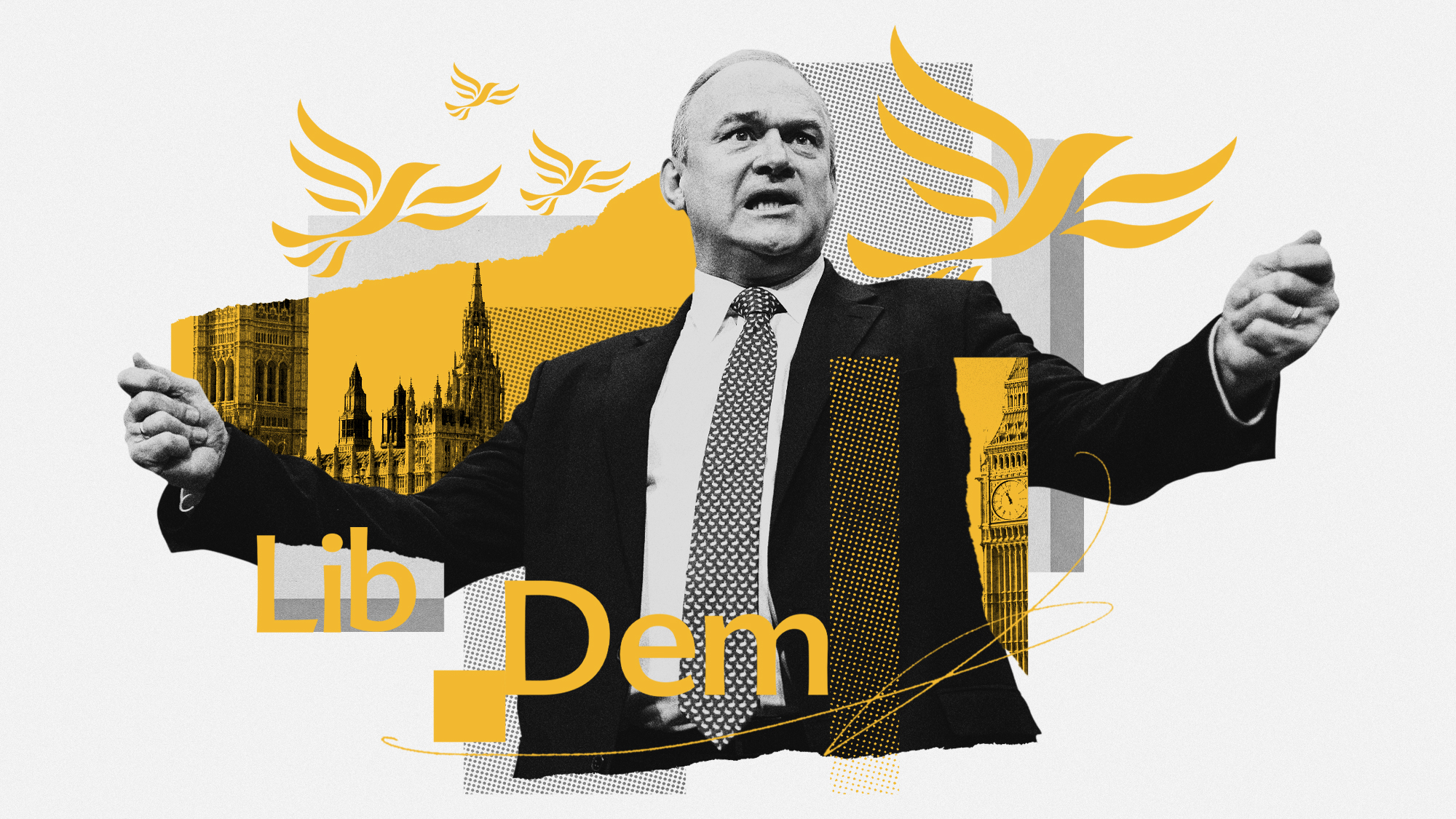Tim Farron resigns as Lib Dem leader
Politician says his Christian faith is incompatible with being head of his party

A free daily email with the biggest news stories of the day – and the best features from TheWeek.com
You are now subscribed
Your newsletter sign-up was successful
Liberal Democrat leader Tim Farron has announced he will resign as head of the party, citing an incompatibility between his faith as a Christian and political leadership.
"A better, wiser person may have been able to deal with this more successfully, to remain faithful to Christ while leading a political party in the current environment," he said in a statement.
"To be a leader, particularly of a progressive liberal party in 2017 and to live as a committed Christian and to hold faithful to the Bible's teaching has felt impossible for me. I have found myself torn between living as a faithful Christian and serving as a political leader," wrote Farron.
The Week
Escape your echo chamber. Get the facts behind the news, plus analysis from multiple perspectives.

Sign up for The Week's Free Newsletters
From our morning news briefing to a weekly Good News Newsletter, get the best of The Week delivered directly to your inbox.
From our morning news briefing to a weekly Good News Newsletter, get the best of The Week delivered directly to your inbox.
According to The Guardian, several senior Lib Dem figures visited Farron in recent days "to attempt to persuade him to step down, though he was initially reluctant".
Questions remain as to whether Farron reached the decision himself or was pushed from the role following the resignation of his home affairs spokesman Lord Brian Paddick.
"I've resigned as @LibDems Shadow Home Secretary over concerns about the leader's views on various issues that were highlighted during GE17," Paddick said in a tweet that has since been deleted.
Sources within the party believe Paddick's decision to step aside "was the beginning of a coup against the leader, who despite increasing the number of his MPs was seen as ineffective during the campaign", the Daily Telegraph says.
A free daily email with the biggest news stories of the day – and the best features from TheWeek.com
-
 The EU’s war on fast fashion
The EU’s war on fast fashionIn the Spotlight Bloc launches investigation into Shein over sale of weapons and ‘childlike’ sex dolls, alongside efforts to tax e-commerce giants and combat textile waste
-
 How to Get to Heaven from Belfast: a ‘highly entertaining ride’
How to Get to Heaven from Belfast: a ‘highly entertaining ride’The Week Recommends Mystery-comedy from the creator of Derry Girls should be ‘your new binge-watch’
-
 The 8 best TV shows of the 1960s
The 8 best TV shows of the 1960sThe standout shows of this decade take viewers from outer space to the Wild West
-
 How corrupt is the UK?
How corrupt is the UK?The Explainer Decline in standards ‘risks becoming a defining feature of our political culture’ as Britain falls to lowest ever score on global index
-
 The high street: Britain’s next political battleground?
The high street: Britain’s next political battleground?In the Spotlight Mass closure of shops and influx of organised crime are fuelling voter anger, and offer an opening for Reform UK
-
 Is a Reform-Tory pact becoming more likely?
Is a Reform-Tory pact becoming more likely?Today’s Big Question Nigel Farage’s party is ahead in the polls but still falls well short of a Commons majority, while Conservatives are still losing MPs to Reform
-
 Taking the low road: why the SNP is still standing strong
Taking the low road: why the SNP is still standing strongTalking Point Party is on track for a fifth consecutive victory in May’s Holyrood election, despite controversies and plummeting support
-
 The Liberal Democrats: on the march?
The Liberal Democrats: on the march?Talking Point After winning their highest number of seats in 2024, can the Lib Dems marry ‘stunts’ with a ‘more focused electoral strategy’?
-
 Can the Lib Dems be a party of government again?
Can the Lib Dems be a party of government again?Today's Big Question Leader Ed Davey is urged to drop the stunts and present a serious plan for the country
-
 What difference will the 'historic' UK-Germany treaty make?
What difference will the 'historic' UK-Germany treaty make?Today's Big Question Europe's two biggest economies sign first treaty since WWII, underscoring 'triangle alliance' with France amid growing Russian threat and US distance
-
 Is the G7 still relevant?
Is the G7 still relevant?Talking Point Donald Trump's early departure cast a shadow over this week's meeting of the world's major democracies